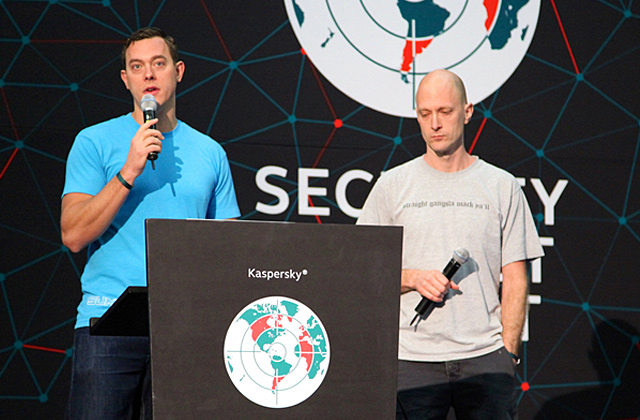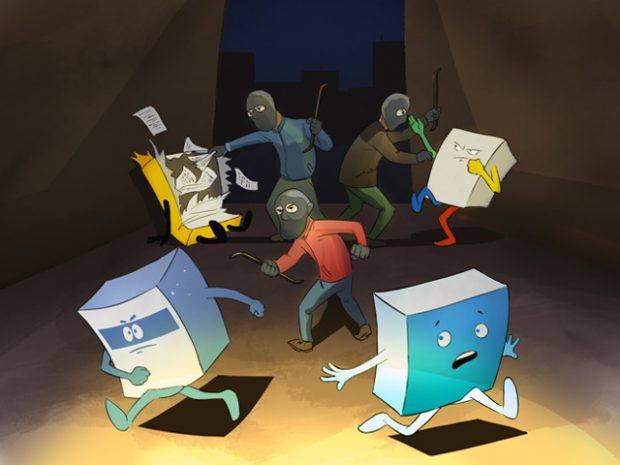
Security News Podcast: A February Wrap-Up
Kaspersky Lab’s Brian Donohue rounds up the latest security news from the month of February 2014. Download podcast for offline listening

“We are what we pretend to be, so we must be careful about what we pretend to be.” ― Kurt Vonnegut
181 articles

Kaspersky Lab’s Brian Donohue rounds up the latest security news from the month of February 2014. Download podcast for offline listening

PUNTA CANA – The second day of Kaspersky Lab’s Security Analysts Summit was organized into three tracks, which were great for the conference attendees, but also means this article will

PUNTA CANA – Security professionals, law enforcement officials, and journalists converged on the Dominican Republic’s Punta Cana resort town for Kaspersky Lab’s extravagant Security Analysts Summit, which came on the

The story of Naoki Hiroshima and his single letter twitter handle underscores the importance of taking a holistic approach to Internet security and reiterates the reality that the security of

Kaspersky Daily editor Brian Donohue sat down with Dr. Charlie Miller, the notorious Apple hacker and Twitter security engineer, and Chris Valasek, the director of security intelligence at IOActive, for

PUNTA CANA–A hacking group likely backed by an unknown national government has been targeting government agencies, embassies, diplomatic offices and energy companies for more than five years in what Kaspersky

Kaspersky Lab’s Brian Donohue rounds up the latest security news from the month of January 2014. Download podcast for offline listening

While the breach itself seemed only to impact those of us in the United States, chances are you’re aware that the American retail giant Target suffered an enormous data breach

To summarize Costin Raiu, the director of Kaspersky Lab’s research arm, the vast majority of malicious files are what he calls crimeware — computer programs deployed by cybercriminals seeking to

For as long as I’ve been working in the security industry, which – in the spirit of full disclosure – hasn’t been a very long time, I have been shocked

We talk about hackable consumer devices a lot here on the Kaspersky Daily. Generally though, the hacks are hypothetical, performed in controlled environments by computer scientists and professional hackers, some

Reports emerged earlier this week that the Starbucks’ iOS mobile application could be exposing the personal information of any customers that downloaded it. To their immense credit – especially considering

A number of widely used iOS banking applications from some of the world’s most prominent banks contain bugs that expose users to data theft and account takeovers. Specifically, a knowledgeable

The global Kaspersky Daily blog (blog.kaspersky.com) will be on recess from December 24 through January 8. Between those two dates, you’ll find no new content on the global blog (except

Firefox mandates in its latest update that all Java plug-ins will operate on a click-to-play basis. Google removes a key privacy feature and fixes a serious vulnerability in its Android

From takeoff to landing, the U.S. Federal Aviation Administration and its counterpart in the European Union have cleared the use of computers and mobile devices, though flyers will still be

A Hull, UK-based developer operating under the pseudonym DoctorBeet came to realize in early November that his LG Smart TV was actually gathering a quite a bit of information about

Kaspersky Lab’s Brian Donohue rounds up the latest security news from the month of November 2013. Download podcast for offline listening

In the U.S. many organizations offer the day after Thanksgiving, which falls on a Thursday, to their workers as a holiday. Brick and mortar American retailers have capitalized on this

Strongly encrypted communications are secure and private communications (as long as there is no monkey-business going on in the way the encryption is implemented into communications software or protocols). Therefore,

There is an all-too common misconception that in order to become infected with web-propagated malware, you must visit sketchy parts of the Internet’s underbelly or a website within that broad